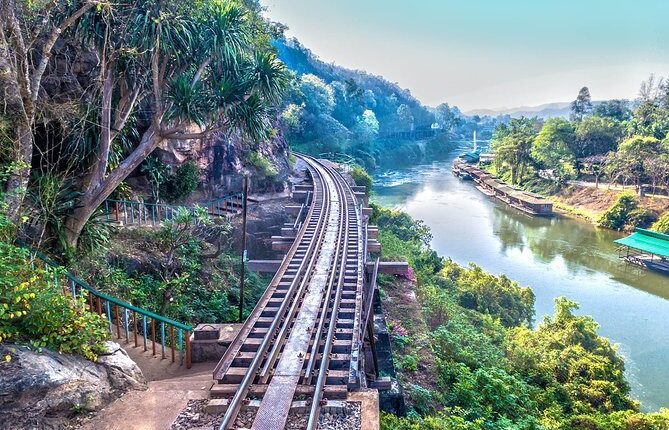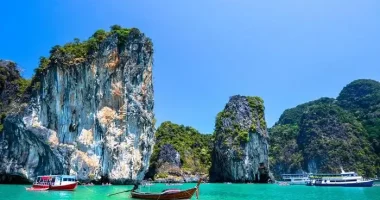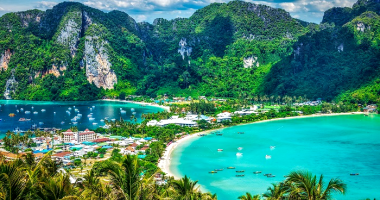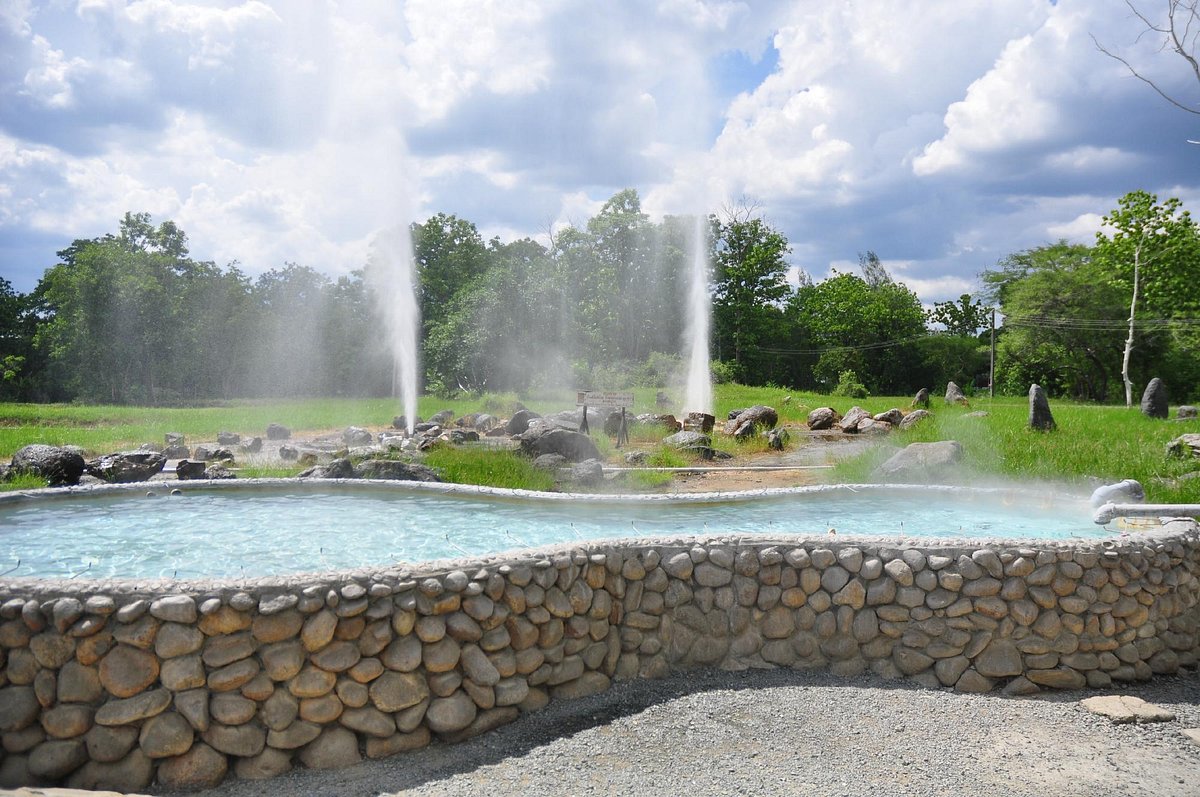Discovering the Historical Significance of the River Kwai
The River Kwai and the Death Railway are pivotal historical sites in Thailand, particularly known for their significance during World War II. This guide explores the rich history of these locations, the railway’s impact on the local community, and the various tours and activities available for visitors.
The Historical Context of the Death Railway
The Death Railway, officially known as the Thailand-Burma Railway, was constructed by Allied prisoners of war and Asian laborers under brutal conditions during World War II. Spanning over 415 kilometers, this railway was intended to connect Thailand with Burma (now Myanmar) to facilitate the transport of Japanese troops and supplies.
- Impact on Local Communities: The construction of the railway resulted in significant loss of life due to harsh working conditions, malnutrition, and disease. It is estimated that over 100,000 laborers died during its construction, earning it the grim nickname “Death Railway.”
Exploring Kanchanaburi: Gateway to the River Kwai
Visiting Kanchanaburi’s Key Attractions
Kanchanaburi serves as the gateway to exploring the River Kwai and the Death Railway. This charming town offers a variety of attractions that highlight its historical significance and natural beauty.
- Bridge over the River Kwai: One of the most iconic symbols of the region, this bridge was constructed as part of the railway and has become a popular tourist attraction. Visitors can walk across it and take in stunning views of the river and surrounding landscape.
- Hellfire Pass Memorial Museum: This museum commemorates the suffering endured by those who built the railway. It features informative exhibits about the history of the railway and offers guided walks along parts of the original track.
Recommended Tours and Activities
Engaging Experiences Along the River Kwai
Visitors to Kanchanaburi can choose from a variety of tours that provide deeper insights into this historical region:
- River Cruises: Enjoy a scenic boat ride along the River Kwai while learning about its history. Many cruises offer meals on board, allowing guests to relax and take in picturesque views.
- Death Railway Train Ride: Experience a journey on a section of the original Death Railway. The train ride offers breathtaking views as it winds through lush jungles and crosses trestle bridges.
- Guided Historical Tours: Join a guided tour that includes visits to key sites such as Hellfire Pass, the War Cemetery, and local temples. Knowledgeable guides provide valuable context about each location’s significance during World War II.
Practical Tips for Visiting
Making the Most of Your Trip to Kanchanaburi
To ensure a smooth visit to Kanchanaburi and its historical sites, consider these practical tips:
- Best Time to Visit: The ideal time to explore Kanchanaburi is during the cool season from November to February when temperatures are more pleasant for outdoor activities.
- Transportation Options: Kanchanaburi is accessible by bus or train from Bangkok. Once in town, many attractions are within walking distance or can be reached via local tuk-tuks or taxis.
A Journey Through History at River Kwai
Exploring the River Kwai and Death Railway offers a profound glimpse into Thailand’s wartime history while honoring those who suffered during its construction. With numerous tours and activities available in Kanchanaburi, visitors can engage with this significant past in meaningful ways. Whether you’re interested in history, nature, or simply seeking adventure, a trip to this remarkable region promises an unforgettable experience.









